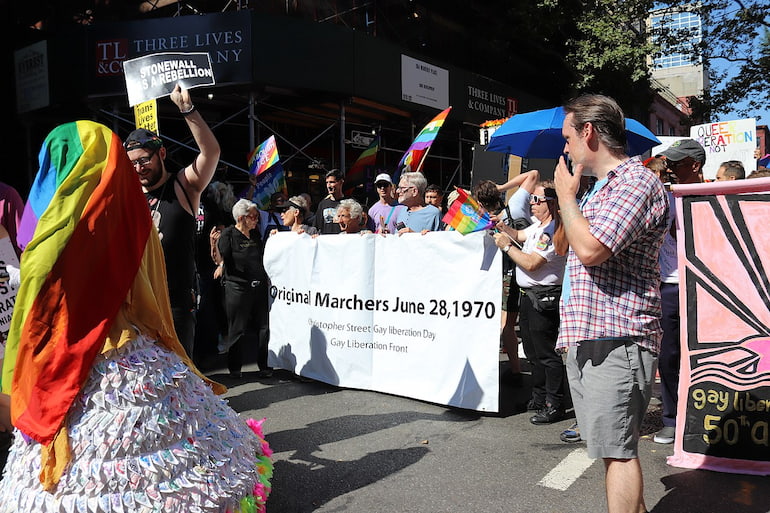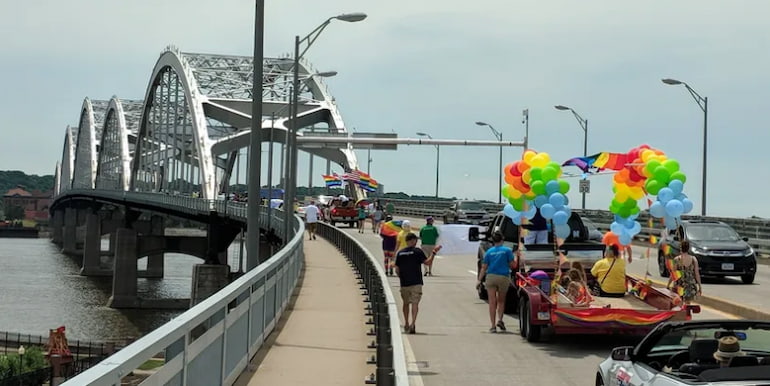QUAD CITIES — You don’t have to pay this year to be part of the Pride Parade in the Quad Cities. QC Pride, the nonprofit that organizes the annual ritual, announced this week they’re waiving fees for the event happening June 1.
“We want to ensure that EVERYONE has the opportunity to participate in the QC Unity Pride Parade,” said QC Pride President Tee LeShoure, who said the waived fees were also suggested by board members and previous participants.
In prior years, the group had sought a fee of $75 from participants. You’ll need to sign up by May 29 to partake of the waived fee.
Parade returns to original Centennial Bridge route this year
Another change this year: the parade route returns to the Centennial Bridge that connects Iowa to Illinois.
Staging area for the parade is at the intersection of 2nd St. and Iowa St., near Ragged Records and the Raccoon Motel. The route proceeds west on 2nd St., then heads south across the Centennial Bridge. Once in Illinois, the parade turns left to pass by the Quad Cities Pride Festival at Schwiebert Riverfront Park.
For the past two years, the parade had been held in downtown Moline to kick off the Pride Party at Bass Street Landing that happens later in the month.
The parade began in 2018 and is among more than a dozen events scheduled in the Quad Cities, and hundreds nationwide, that honor the Stonewall Uprising of 1969 when New York City’s LGBTQ+ community stood up against weeks of police oppression.
Remembering the start of the Pride Parade tradition
The tradition of Pride parades and marches started a year after the Stonewall Uprisings in 1969 that inspired Pride festivals, writes the New York Times. The first-ever Christopher Street Liberation Day March took place on June 28, 1970, and involved just over 1,100 people, the Times writes.

Some of the “Original Marchers” from the first-ever Pride March, Christopher Street Liberation Day in 1970, are pictured in New York City’s 2019 Pride parade.
“Chanting gay liberation slogans, we wore Halloween costumes, our best drag, tie-dye T-shirts, or almost nothing,” said Karla Jay, a co-organizer of the first gay marches in New York City and Los Angeles, and a member of the Gay Liberation Front and the Radicalesbians activist group. “Homemade floats featured Vaseline jars and a crucified queer man. Amazons rode on horseback. Crowds 10 deep cheered as we raucously urged them to join us.”
The earliest gay pride parades were modeled after a tradition that begain in 1962: Reminder Day Pickets, writes the Library of Congress. These smaller marches called for an end to employment discrimination against “homosexuals” and were led by a coalition of lesbian and gay activist groups called the Eastern Regional Conference of Homophile Organizations (E.R.C.H.O).


